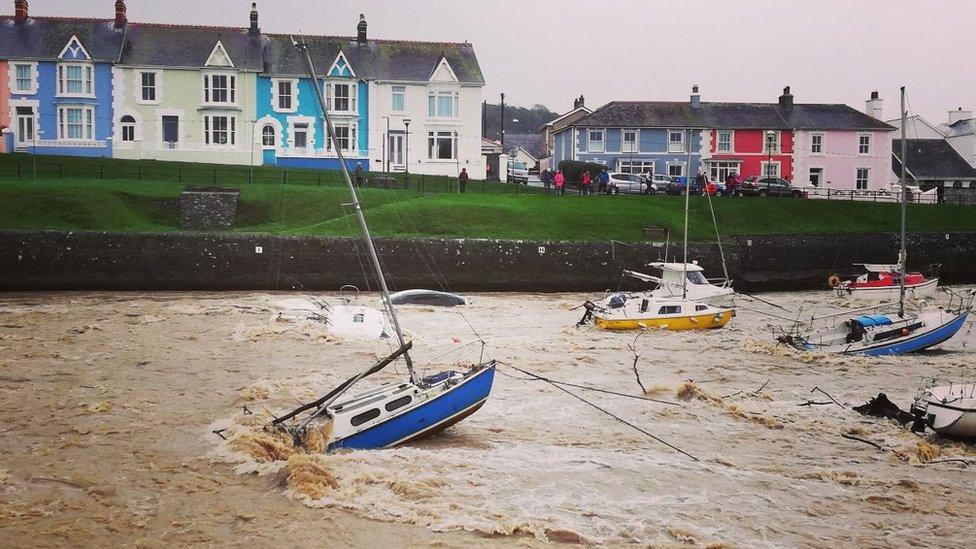Farmers struggle with year of extreme weather in Wales
- Published
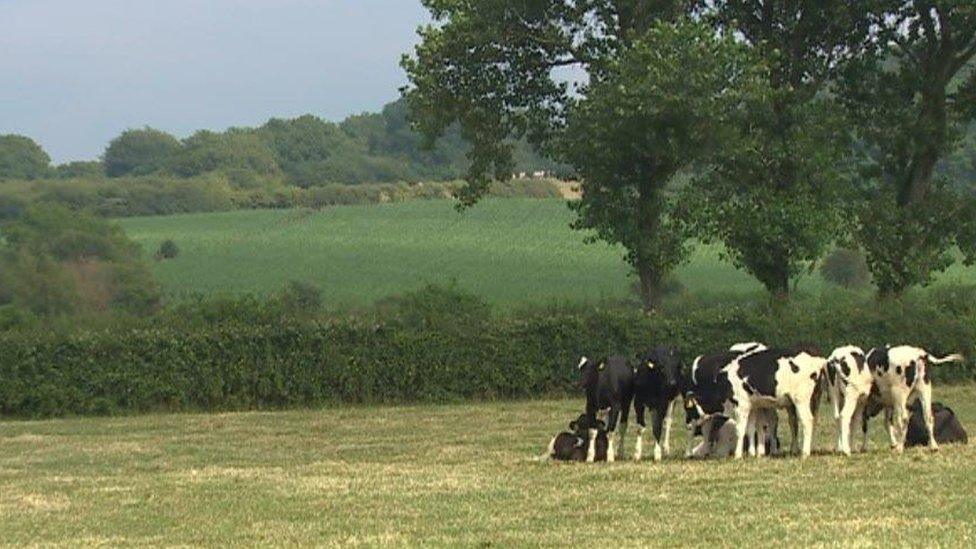
Yellowing grass in the heat wave has led to long-term problems for farmers
From snow and rain to scorching sunshine, farmers in Wales have had to deal with extreme weather this year.
Farmers have said the weather has impacted their yields, livestock and their bottom lines, with many spending thousands to preserve their land.
Over the weekend the country was battered by Storm Callum, bringing more disruption.
But it is not over yet as the weather will have a long term impact on the industry.
National Farmers Union President John Davies, who is a beef and sheep farmer based in Powys, said the weather has impacted on his livestock.
"Back in March we had roads full of snow, and we had a few waves of that cold weather which really did impact on our livestock," he said.
"It was a nightmare to get around and feed them and we experienced higher losses than normal with lambing.
"We had a wet summer last year, but this summer was far too dry for the grass and all farmers have struggled.
"Agriculture farmers will have had lower yields because of that dry time and livestock farmers used a lot of their winter fuel to feed the animals in the summer. Now, we have to rebuild for the winter and prepare.
"We had to buy a load of hay in the summer and spent thousands which came directly from our bottom line."
Cows wade through flood water near Llandeilo during Storm Callum
Rhys Llouger, a dairy farmer at Ty Tanglwyst in Bridgend, added: "We lost two months of growing season because it got so dry.
"We couldn't let animals out to graze so we had to keep them housed, get the sheds mucked out, and feed them. It was a massive increase in cost and some feed has to be purchased in.
"Feed stocks across the country were low before the drought, after the snow in March, so stocks are worryingly low. We've had to purchase very fast growing grass because we know we need grass early to harvest it next spring.
"It's going to be tough."
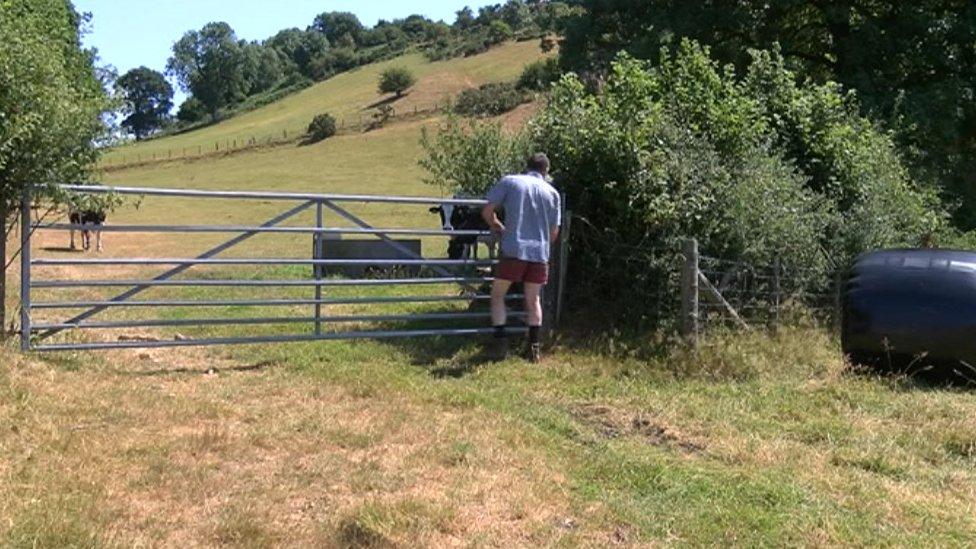
Weeks without significant rain left grazing land parched over the summer
The BBC Weather Centre said there is nothing linking the extreme weather from this year.
"It's important to remember that we have always had heat waves and we do get cold spells too," a spokesperson said.
"We get a variety of weather types as we are in the mid latitude."
- Published15 October 2018
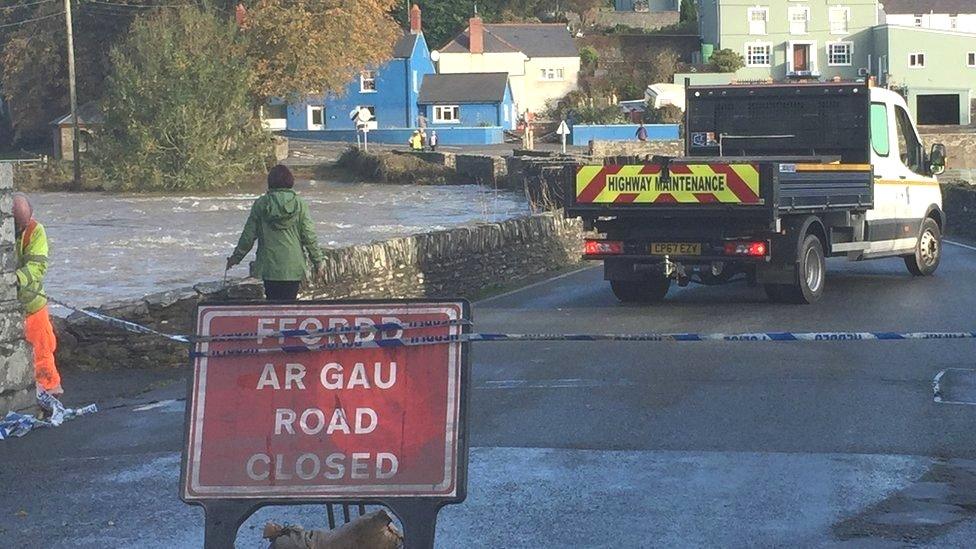
- Published25 July 2018
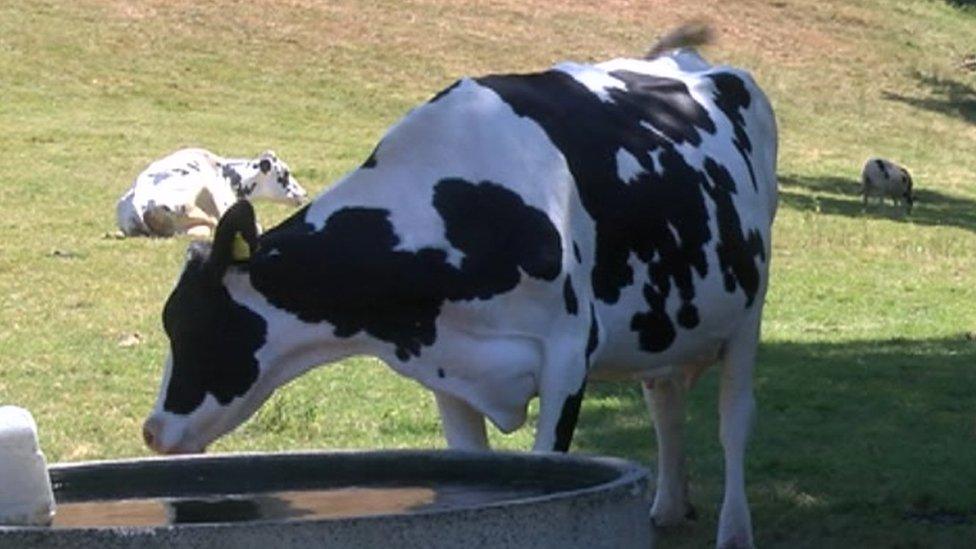
- Published15 October 2018
